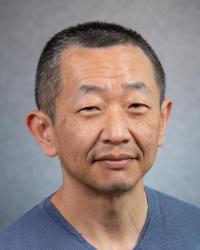The federal government's decision to rescind the Deferred Action for Childhood Arrivals (DACA) program was arbitrary, capricious, and infected with racial animus, according to an amicus brief filed by the Fred T. Korematsu Center for Law and Equality.
The Korematsu Center joined the American Historical Association, the Organization of American Historians, and 42 historians in filing the amicus brief in the case, Dept. of Homeland Security v. Regents of the University of California. The brief supports the respondents.
Read the full brief here.

The challengers allege that the rescission of DACA is arbitrary and capricious based on the agency's contemporaneous explanation, in violation of the Administrative Procedure Act and Equal Protection Clause. The federal government argues that DACA's rescission is not judicially reviewable and that its rescission was adequately justified.
In the amicus brief, the Korematsu Center and others assert that the rescission is infected by racial animus discernible through code word analysis, and that such analysis is a widely accepted methodology in the field of history and regularly relied on by courts. The brief's authors analyze the history, context, and contemporaneous statements by President Trump that reflect anti-Mexican and anti-Latino sentiment behind the decision to rescind DACA. Those statements are consistent with racially coded language he used throughout his campaign and presidency, and reveals that the Trump Administration's explanation for rescinding DACA is impermissible pretext.
Professor Robert Chang"It is so heartening to see historians come together to use their skills and knowledge to support the communities and individuals most harmed by DACA's rescission," said Professor Robert S. Chang, executive director of the Korematsu Center and co-counsel on the brief.
Lead pro bono counsel Pratik A. Shah, co-head of the Supreme Court and appellate practice at Akin Gump Strauss Hauer & Feld LLP, said this case is similar to the attempted inclusion of a citizenship question on the 2020 Census, which the Supreme Court ruled against. "The Supreme Court made clear in the census case that it will not blindly accept the government's invocation of facially neutral justifications," he said. "Here, the government's (largely post hoc) explanations and coded attacks on DACA recipients cannot mask its discriminatory motive."
The University of California and others sued the Department of Homeland Security in 2017 for the rescission of DACA. The U.S. Court of Appeals for the Ninth Circuit, as well as other lower courts in three different jurisdictions, issued preliminary injunctions against the Trump Administration, ruling that it acted improperly and allowing DACA renewals to continue. The cases were then appealed to the U.S. Supreme Court.
"Everything has a history," said James Grossman, the executive director of the American Historical Association. "In this particular case, the AHA considers it imperative for the court to be aware of the historical context of current efforts to vilify an entire racial group."
Joanne Meyerowitz, the president of the Organization of American Historians, said the rescission of DACA is part of a longer history of prejudice against immigrants. "We can't understand the present without knowledge of the past," she said. "The court needs to see the long and damaging history of anti-immigrant sentiment and to recognize the language — coded and overt — in which it has been expressed."
Oral argument is scheduled for November 12, 2019, and the Supreme Court is expected to issue a decision by next June.
Individuals and organizations that have joined the amicus brief include the Fred T. Korematsu Center for Law and Equality, the American Historical Association, the Organization of American Historians, and 42 individual historians trained in the field of history who study, teach, and write about United States history at American colleges and universities.
Attorneys from Akin Gump Strauss Hauer & Feld LLP — including Washington, D.C. appellate partners Pratik A. Shah and Julius Chen, Los Angeles litigation senior counsel Jessica Weisel, and New York litigation associate Nathaniel Botwinick — served as pro bono counsel on the brief. The amici were also represented by New York corporate partner Alice Hsu. Professor Robert S. Chang, Lorraine K. Bannai, Melissa Lee, and Jessica Levin of the Korematsu Center also served as counsel on the brief.
